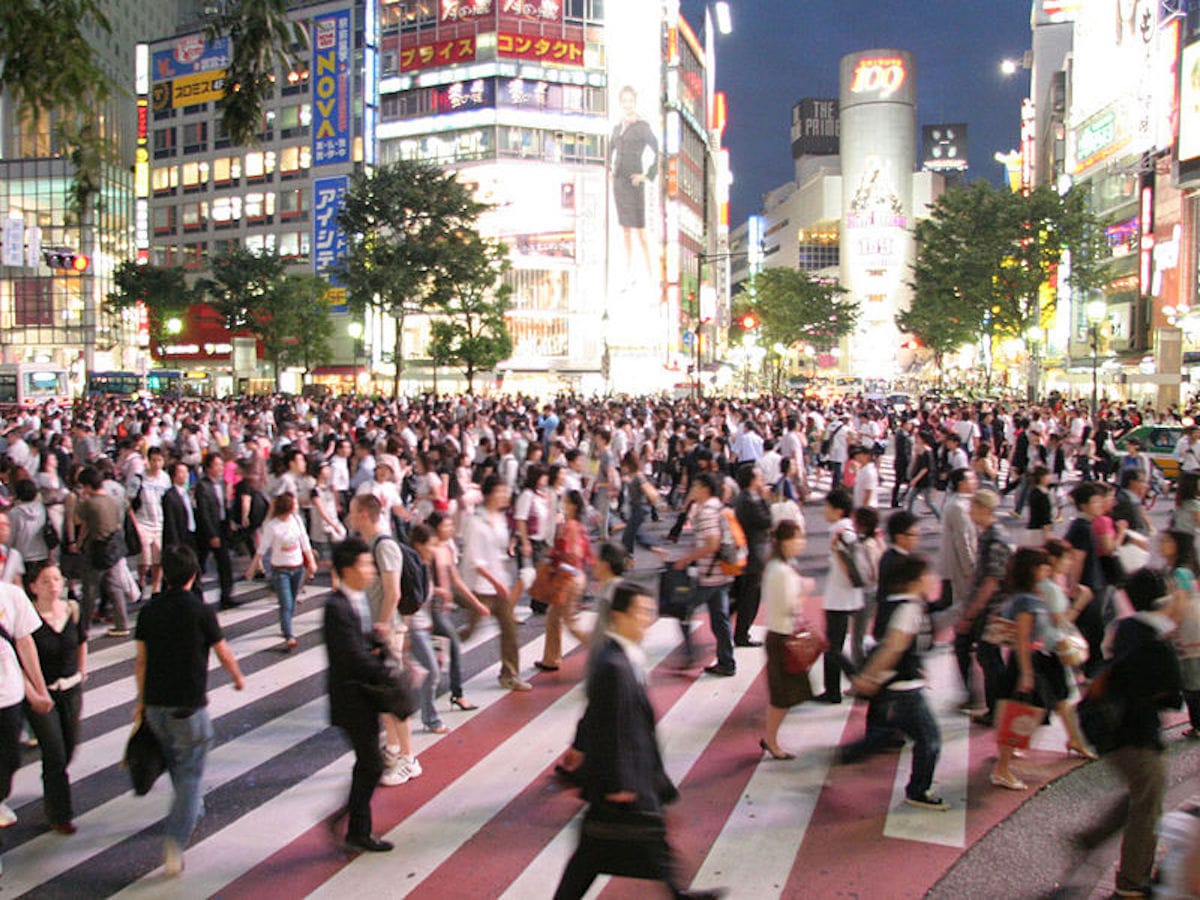
Source: Robert Huffstutter, CC BY 2.0 / © Flickr.com
Help (not) wanted: immigration politics in Japan
- Tags:
- immigration / Japanese politics
Related Article
-

With the Departure of Shinzo Abe, Yoshihide Suga takes the reigns
-

Former Justice Minister arrested amid vote-buying scandal in Hiroshima
-

Coronavirus and Olympics top of agenda as election for Tokyo governor kicks off
-

An AI Candidate Is Running For Mayor In Tokyo, Promising Impartial Politics
-

The times Japanese politicians put their foot in their mouths


Japan is suffering from a terrible labour shortage. A Manpower survey of human resources managers around the world found that HR managers in Japan have more difficulties filling job vacancies than their counterparts in any other country.
The main reason for Japan's labour shortage is that the number of people of working age is shrinking. Japan’s workforce was at its biggest in 1995, when the post-war baby boomers hit their stride. It has been steadily declining since then, from 70% of the country’s total population to 60% in 2017 and an expected 50% in 2040.
As the number of workers shrinks, the proportion of elderly people in Japan goes up. The over-60s already make up 32% of the population, the highest proportion of any country in the world, and this increases every year.
Graph showing changing composition of the foreign-born population of Japan. | Transition_of_Foreigners_in_Japan.gif: Jjokderivative work: Beao, CC BY-SA 3.0, via Wikimedia Commons
The labour shortage is more acute in Japan, but it's also more recent. Countries like France and Germany had similar labour shortages back in the 1960s and '70s. Germany tackled the problem by creating a guest worker programme, in response to which several million Turks went to work in Germany. France offered citizenship to citizens of its former colonies, particularly Algeria.
In Japan, the ruling LDP looked at the Franco-German experience of mass immigration and judged it to be a failure. It has tried to avoid having to invite in foreign workers and could afford to do so because Japan only began to experience labour shortages in the '80s.
Until then, a larger proportion of its people had been still farmers than was the case in most advanced economies. Thereafter, labour shortages spread from farming to professions like construction, nursing, care work, retail and services.
Under pressure from business leaders, in 2009 an LDP working group recommended admitting 10m foreign workers to stem labour shortages. This prompted quite a backlash in the press, which the LDP took as license to kick the issue into the long grass for another decade.
kaybee07, CC BY 2.0, via Wikimedia Commons
But the labour shortages didn't go away and neither did the vexatious issue of how best to tackle them, so in 2018, the government introduced a new immigration law. It was designed to attract 350,000 unskilled foreign workers to Japan over the next five years. It made it clear that they would only be temporary guest workers. Visas would be valid for five years, they would not be allowed to bring their families with them, and they would be expected to go home when their visas expired.
Outsiders often suppose that anti-immigrant feeling is strong among the Japanese public. This is not born out by surveys, but the LDP's core voters tend to be older, and among them, the anti-immigrant feeling is certainly stronger than it is among younger voters. There are also groups hostile to immigrants that have become more vocal thanks to social media, which gives them prominence despite their limited support.
While the LDP tries to reassure older voters that it has a steady hand on the tiller, immigrants are making themselves at home in Japan. Not only is 2% of the population foreign-born (twice the proportion of 20 years) but 2% of children in Tokyo have a non-Japanese parent.
The LDP will be watching closely to see how public opinion responds to the new arrivals. While it remains to be seen how many more immigrants the government is prepared to admit in order to ease Japan's labour shortage, one thing is clear: 350,000 is not going to be enough.
You can find out more about this topic by watching Immigration Politics in Japan, an online lecture hosted by the Japan Zoominar at UC San Diego in December 2020, at the following link.